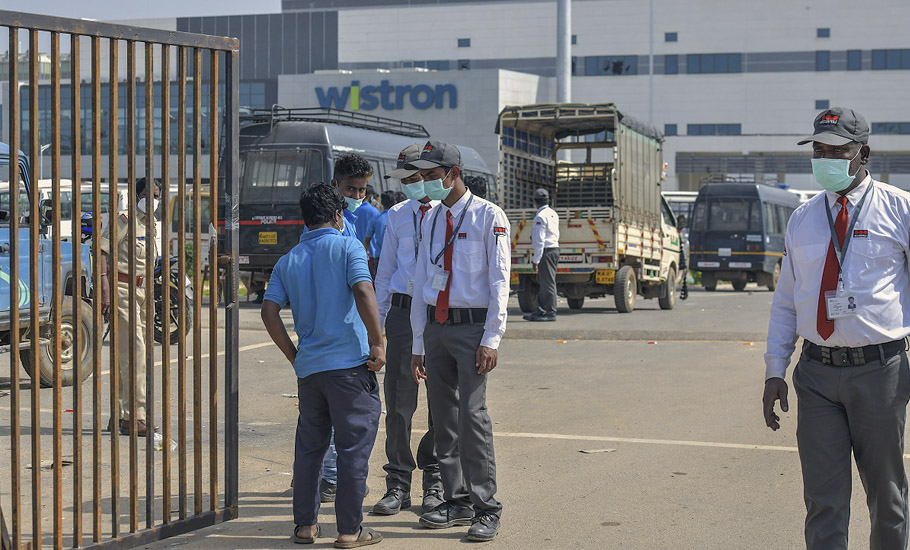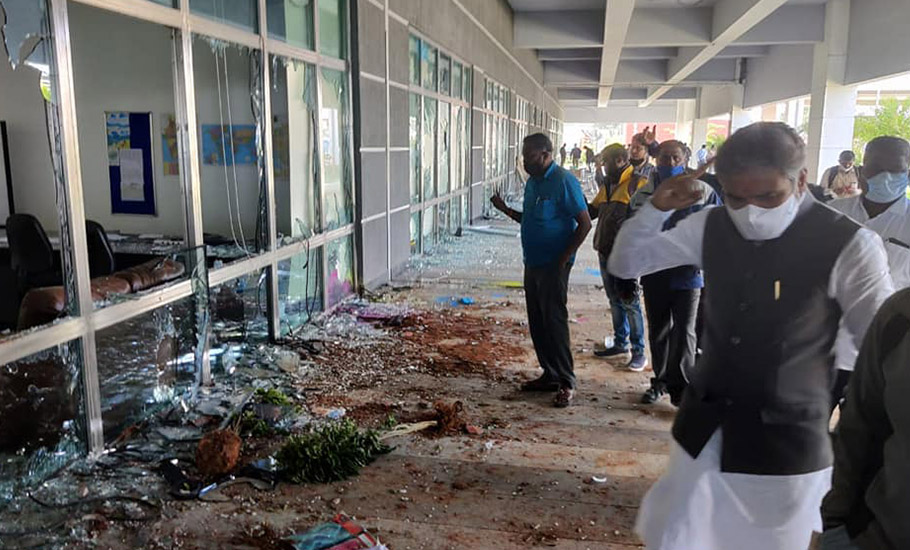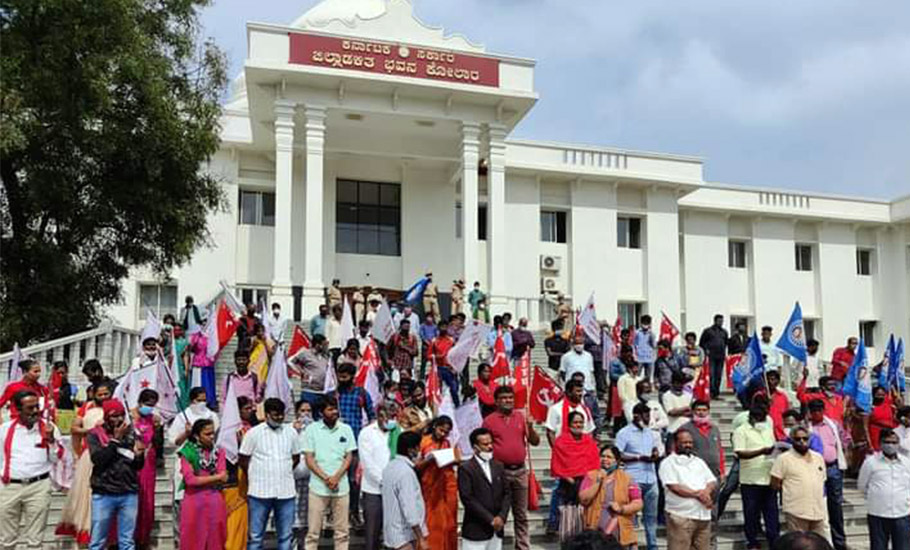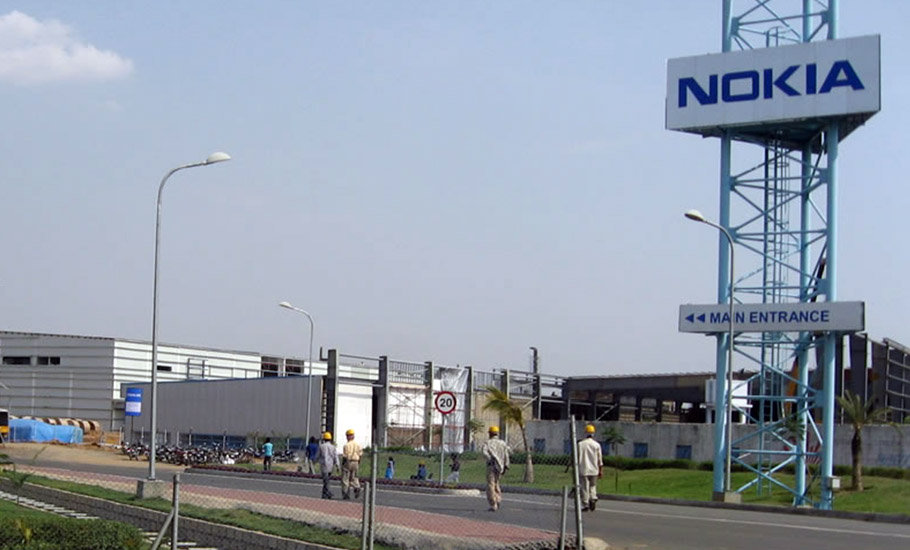
- Home
- India
- World
- Premium
- THE FEDERAL SPECIAL
- Analysis
- States
- Perspective
- Videos
- Sports
- Education
- Entertainment
- Elections
- Features
- Health
- Business
- Series
- In memoriam: Sheikh Mujibur Rahman
- Bishnoi's Men
- NEET TANGLE
- Economy Series
- Earth Day
- Kashmir’s Frozen Turbulence
- India@75
- The legend of Ramjanmabhoomi
- Liberalisation@30
- How to tame a dragon
- Celebrating biodiversity
- Farm Matters
- 50 days of solitude
- Bringing Migrants Home
- Budget 2020
- Jharkhand Votes
- The Federal Investigates
- The Federal Impact
- Vanishing Sand
- Gandhi @ 150
- Andhra Today
- Field report
- Operation Gulmarg
- Pandemic @1 Mn in India
- The Federal Year-End
- The Zero Year
- Science
- Brand studio
- Newsletter
- Elections 2024
- Events
- Home
- IndiaIndia
- World
- Analysis
- StatesStates
- PerspectivePerspective
- VideosVideos
- Sports
- Education
- Entertainment
- ElectionsElections
- Features
- Health
- BusinessBusiness
- Premium
- Loading...
Premium - Events

With or without labour unions, workers are left to struggle in electronic industry
Workers feel that had there been a union, their issues could perhaps have been resolved faster and in an amicable manner.

As Srivatsa Kumar* stepped out of his workplace on the morning of December 12 last year, he could sense a ‘storm’ brewing. Kumar had just finished his night shift (10 pm-6 am) at Wistron Infocomm, the Taiwanese contract manufacturing company for Apple’s iPhones, in Narasapura industrial area, at the periphery of Bengaluru city. A large group of employees had gathered outside to...
As Srivatsa Kumar* stepped out of his workplace on the morning of December 12 last year, he could sense a ‘storm’ brewing. Kumar had just finished his night shift (10 pm-6 am) at Wistron Infocomm, the Taiwanese contract manufacturing company for Apple’s iPhones, in Narasapura industrial area, at the periphery of Bengaluru city.
A large group of employees had gathered outside to protest against the discrepancies in salary payout. Most of them, including Kumar, had been promised good salaries but were paid much less, and also made to work more.
Kumar, however, felt protest was not the right way to address the issue. So, he went home. Unlike his counterparts who travelled in company buses for 20-40km, as far as from Bengaluru city, Kumar hailed from the nearby town in Kolar and hence travelled back home on his own vehicle.
Within half an hour the crowd went berserk as the company failed to address the wage issues. The irate workers allegedly threw stones, smashed glass windows, damaged vehicles, furniture, and other office equipment alleging they were paid a lesser salary than promised or delayed payouts, without valid reasons.
Kumar, who claims to be back home by then, was unaware of what was happening at the factory.
Later, more discrepancies came to light. For instance, Kumar and some of his colleagues were recruited by one of the seven contracting firms—Quess Corp Ltd—as a contract employee, and not by Wistron directly. Except for the payslip, which said they were deputed to Wistron Infocomm Manufacturing India Pvt Ltd, there was no proof that he worked for Wistron. The hiring company managed all their payrolls.

While the payslip showed the cost to the company (CTC) to be ₹21,863 per month for a 12-hour shift, the take-home salary was only ₹16,904.71, including ₹3,150 as shift allowance, variable dearness allowance at ₹1,786, and overtime allowance of ₹2,340 (for 20 hours). This, the workers claimed, was a discrepancy and demanded full payment of wages.
The company shut the plant the same day and pegged its losses at ₹437 crore. But it later revised the figure to ₹47 crore in a submission to the government. Both Apple and Wistron, in their internal reports, acknowledged the lapses in payments to workers.
Kumar, who raised the issue with his immediate supervisor, says it was never addressed.
A grossly mismanaged process
After the vandalism, the state deployed its resources to work with the management in resolving the dispute as quickly as possible. But the employees now fear that their jobs are at stake. As many as 7,000 people including 5000 workers, nearly half the workforce of the entire factory, have been booked in connection with violence and vandalism at the facility.
Even as internal reports and employees’ testimonies revealed gross mismanagement in salary payments and treatment of workers, the government brushed off the unrest as a stray incident and assured full support to resolve the issue.
Karnataka labour department officials found that the hiring firms had violated certain provisions of the labour laws and said companies did not maintain proper attendance and staff records.
After two months of shutdown, there’s no sign of the company resuming operations amid the state officials and minister meeting the company five times. The company is now redoing the entire hiring process, even for existing workers, most of whom are reported to be contractual.
The company sought a list of 10 documents including ‘character certificate’ from a gazetted officer, a police verification letter (stating they were not involved in the vandalism at the factory in December), parents’ consent letter, medical fitness certificate among other documents, along with CVs.
It took nearly a week for Kumar to get the police verification certification after at least three rounds of visit to the police station to prove that he was not part of the vandalism incident.
Workers’ union in the electronics sector
Kumar now feels that had there been a recognised workers’ union, the issue could perhaps have been resolved faster and in an amicable manner as the workers would have had the right to voice their concerns in an organised manner. He feels that violence or vandalism is a result of a lack of workers’ union.
But the government or the corporates are not keen on workers having a union in this sector. Although workers’ unions exist in the automobile manufacturing sector across cities, the electronics manufacturing industry does not encourage unionisation of workers. In fact, managements feel that unionisation works against the interest of workers.
It’s a different story that even with unions workers are not able to command much negotiating power. For instance, in the case of Toyota factory in Bidadi, Bengaluru rural, the workers are on strike for the last three months.

Despite the state intervening to resolve the issue, the company’s firm on its decision to suspend certain protesting workers, pending inquiry. But here, because they had a union, the workers were able to voice their concerns collectively.
Nokia crisis
A decade back, different unions backed by political parties like DMK and CPIM had a strong presence in Sriperumbudur when Nokia and Foxconn (Taiwanese contract manufacturer-supplier to Nokia back then) were among the biggest job creators in the region.
Nokia’s mobile phone factory in Sriperumbudur employed over 11,300 workers. It also facilitated other ancillary units to come up, such as Salcomp and Flextronics, which manufactured chargers for the phones assembled in Nokia and Foxconn plants, and employed close to 5,500 people.
The workers’ union was strong and constantly raised issues about the poor wages, working conditions, and facilities inside the factory.
The company eventually shut the plant in November 2014. It resulted in 8,000 people losing jobs in one go. Subsequently, it also affected Foxconn, which too downsized its workforce. Some workers did not agree to the severance pay and challenged it in the High Court; the case has still not been resolved.
K Rajini, one of the 349 petitioners in the case says, neither the state nor the company is willing to come to their rescue.
“When we talked to the labour minister and the secretary to the government, they assured us to take up the issue. But within weeks, we were called by the authorities saying we were trying to disrupt the company functioning, and were asked to withdraw the case,” Rajini says.
A section of workers blame the union for the fall of the mobile handset giant.
Left in the lurch
Rajini, who lost his job, hasn’t been able to get another yet. He says he’s managing small firms in his village in Kancheepuram.
Another colleague, Elango* who also lost his job in 2014-15, shifted from electronics to the automobile and solar manufacturing industry during 2015-2020, but the COVID-19 pandemic took his job away.
He has been desperately trying to get a job since last July, but he hasn’t got one yet. There’s no recognised union for him to approach and seek a resolution. Now, Elango helps his father with farming in Walaja, Tamil Nadu.
A 2011 report on the labour standards of mobile phone manufacturers in India by research groups Finnwatch, Cividep & SOMO highlighted the precarious employment conditions in factories like Nokia, Salcomp, Foxconn and Flextronics, all in Sriperumbudur. The report said the companies employed workers as trainees and as contract workers, without the same benefits as permanent employees.
The report also highlighted how 300 Foxconn workers were arrested and imprisoned during a strike and that the workers were not allowed to bring a lawyer, a co-worker, or any other representative in support.

Workers belonging to the Foxconn India Thozhilalar Sangam (FITS) union, affiliated to Centre For Indian Trade Unions (CITU), at the plant were involved in weeks of agitation to have their union recognized so that they could raise the minimum wages, health, and bonus issues.
“Workers in Salcomp worked as trainees for the first 18 months followed by a probationary period of six months. After completing the ‘training’, workers have no claim to being hired permanently,” the report said.
It also said that workers were not fully informed about the lengthy process toward regular and permanent employment. “The contract labour and trainee systems trap workers in an unfair and exploitative position,” it said.
“I started in 2008 at ₹7,500 per month as an operator. I saw an increment of ₹2,000 in six years. Even now it hasn’t gone beyond ₹12,000 as the opportunities are less and there’s enough labour supply,” Elango says. At 32, he finds it hard to get a job as most companies recruit people in the age group of 20-25.
Fundamental labour laws such as the Factories Act of 1948, Minimum Wages Act of 1948, Workman Compensation Act of 1923, Maternity Benefits Act of 1961, Payment of Bonus Act of 1965 and Contract Labour (Regulation and Abolition) Act of 1970, were all compromised.
The Madras School of Economics study indicates that industrial growth in Tamil Nadu slowed down from 10.9% (2005–2011) to 4.6% (2011–2017), largely led by shrinking manufacturing and construction activities.
The labour unrest in the Wistron factory in Karnataka stems from similar problems. The All-India Central Council of Trade Unions accused the Karnataka government of going soft on establishments to create a favourable “investment climate”.
Amid the COVID-19 stress on industries and investments, Chief Minister BS Yediyurappa has been pitching hard to project Karnataka as a favored destination for Foreign Direct Investments (FDIs).
The vandalism incident at Wistron did not just put the company on the back foot, but also, the state considering the investment climate in Karnataka.
“Does not the state government see that what is being generated is exploitative employment opportunities without even wages being guaranteed?” the union asked in a statement.
Today, Foxconn, one of the competitors for Wistron, is one of the biggest recruiters in the electronics manufacturing sector. There are nearly six units working in different names, but all catering to mobile manufacturers like Apple, Xiaomi, Samsung and others.
Rising Star Mobile India Pvt Ltd, one of the Foxconn units in Sriperumbudur, located 300 mts from the Foxconn main gate, recruits ITI diploma holders, engineering graduates from rural Tamil Nadu. Young graduates line up at the gate looking for jobs.

Engineering graduates hide their degrees fearing they might be rejected on grounds of being overqualified for the job.
And many of these youngsters, especially those coming from rural areas of neighbouring districts like Thiruvannamalai, Vellore, Madurai, Cuddalore, settle for a salary of as low as ₹10,500.
“That’s why we are saying unions should be recognised by the companies. How can the salaries remain constant for a decade for the same job?” Rajini asks.
Companies follow a different strategy to curtail unionisation. The new joinees are not even told about the parent companies and what their rights are. While many are hired on a contract basis, employees say they recruit people in Tamil Nadu and place them in Sri City (Andhra) and recruit people from Andhra and place them in the Sriperumbudur plant. The female to male employment ratio was at 60: 40.
“The companies think that bringing an outsider will solve the problem as they will not have the bandwidth to fight and create problems for the company,” one of the workers said. “They prefer women workers and also provide accommodation inside the industrial area or in apartments outside with a bus facility up to 40 kms range,” the worker said. “Monday to Saturday we work. And Sunday we rest or go to hometowns and be back. So, there’s no scope for one to raise their voice outside the office,” the worker said.
But even though the salaries are less, most youngsters coming from rural areas feel that it’s better to get something that nothing in the village being unemployed.
Devika*, 22, a civil engineer from Cuddalore, who joined Rising Star for ₹10,500 a month says it’s better than being jobless in Cuddalore.
“In my village, people tend to get their daughters married as soon as they turn 18-19. But working women get a bit leeway until 22-23. As I may get married soon, I do not think about a long term career in this industry,” Devika adds.
For her, it’s important that she adds to the family income, and that adds to the savings for her marriage.
“My father is a farmer. We grow sesame, urad dal and corn on 1.5 acres of land. But with no regular rain, it’s only a loss-making profession. So I support my family with my income,” she adds.
As she feels the company provided accommodation is priced high, Devika lives in a rented 1-BHK (about 500 sq ft) house with four others, paying a rent of ₹700 each. They travel 30 km each way with free transportation from the company.
“They deduct only about ₹200 for vehicles and provide canteen food twice a day. So my expenses are restricted to ₹2500 a month. I can send back ₹8,000 every month to my parents.”
(Names have been changed to protect privacy)
